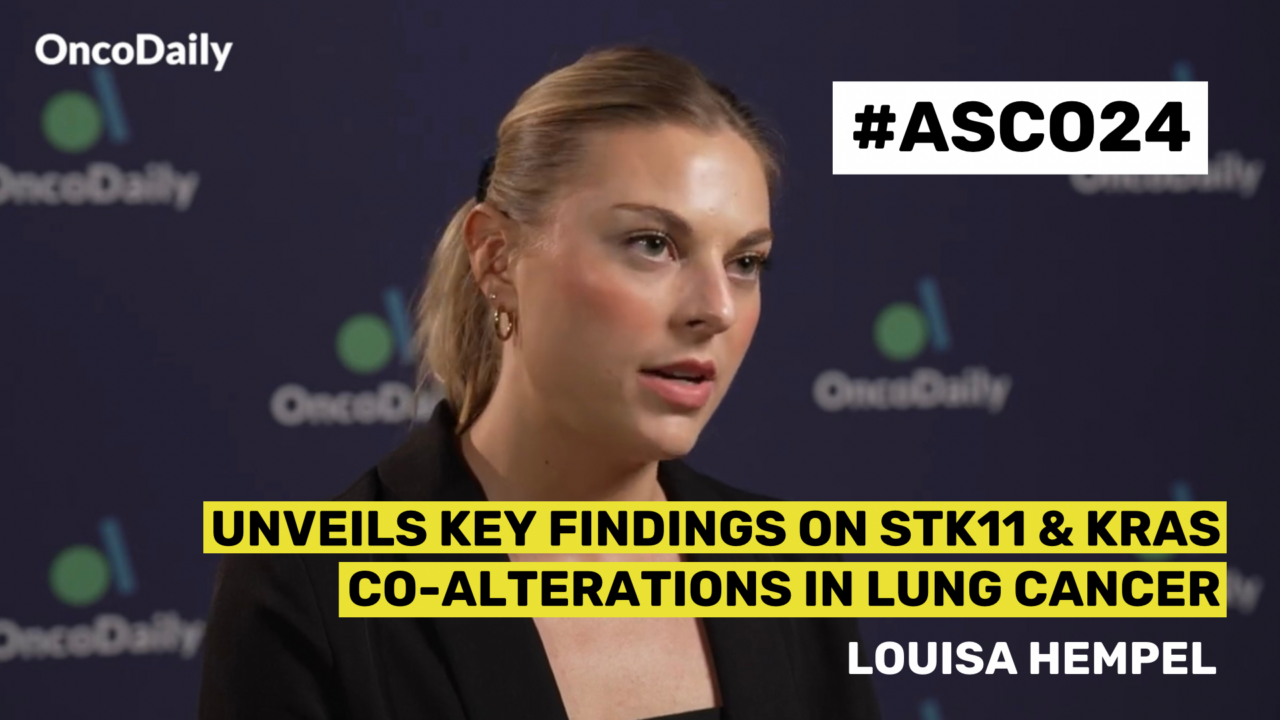The American Society of Clinical Oncology (ASCO) Annual Meeting is one of the largest and most prestigious conferences in the field of oncology. This year, the meeting took place from May 31 to June 4 in Chicago, Illinois. The event gathers oncologists, researchers, and healthcare professionals from around the world to discuss the latest advancements in cancer research, treatment, and patient care. Keynote sessions, research presentations, and panel discussions are typically part of the agenda, providing attendees with valuable insights into emerging trends and innovations in oncology.
This year, OncoDaily was at ASCO 2024 for the first time covering the meeting on-site. We had the pleasure of interviewing researchers who summarized the highlights of their work.
In this video, Dr. Louisa Hempel from the Comprehensive Cancer Center at the University Hospital of Zurich, shares insights on ‘Loss of heterozygosity (LOH) in KEAP1/STK11-mutated lung adenocarcinoma to characterize a new subgroup of hard-to-treat patients with unmet need in the real-world setting.‘
Hi, my name is Louisa Hempel. I’m from the Comprehensive Cancer Center of the University Hospital of Zurich. And together with a group of Andrea Zwicky, we conducted a retrospective analysis to evaluate the clinical impact of STK11 key-borne co-alterations and lung adenocarcinoma.
So we enrolled 104 patients in this trial to evaluate the real-world progression-free survival and the medium overall survival. And we were able to identify a new subgroup of patients, those presenting with a key-borne alterations and also loss of hydrocergosity that showed a real-world progression-free survival of only 3.5 months and then medium overall survival of 14 months, which emphasizes a primary resistance mechanism to current standard of therapy treatment options.
So to conclude, STK11 key-borne and K-RAS co-alterations and Langer-Dienau carcinoma define a subgroup of patients with hard-to-treat alterations, also those with key-borne alterations and loss of hydrocergosity.
Our data also highlight that upfront molecular testing should include STK11 key-borne alterations, also loss of hydrocergosity to identify those at need patients


